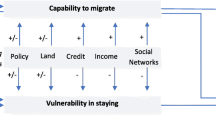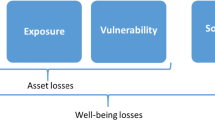Abstract
Nationally and globally economic growth is not solving the problem of poverty. What other approaches can be recommended. A conference to discuss this question included William Rees, Herman Daly, Wes Jackson, Virginia Abernethy, and Majid Rahnema whose papers are included in this issue. Among the issues discussed is whether the contribution of nature to the economy should be taxed by government for the benefit of the poor; how current policies pauperize farmers and what can be done about it; and how population growth is related to economic prospects. The understanding of poverty as lack of the ability to acquire goods was challenged.
Similar content being viewed by others
REFERENCES
Lomborg, B. (2001). The Skeptical Environmentalist: Measuring the Real State of the World. New York: Cambridge University Press.
Maris, R. (1999). Ending Poverty. London: Thames and Hudson.
Author information
Authors and Affiliations
Rights and permissions
About this article
Cite this article
Cobbx, J.B. Introduction to Special Issue: Population, Environment, and Poverty. Population and Environment 24, 3–13 (2002). https://doi.org/10.1023/A:1020107209077
Issue Date:
DOI: https://doi.org/10.1023/A:1020107209077




